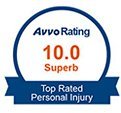Employment and SSD Information

Social Security disability (SSD) benefits are incredibly vital to many disabled individuals. It is not uncommon for recipients to want to also return to work in some capacity at some point. However, many disability recipients shy away from employment out of fear of losing their SSD benefits.
When you are receiving SSD benefits, the Social Security Administration (SSA) will allow you to work without risking your benefits in certain circumstances. Your benefits may be in jeopardy only if your income exceeds certain limits.
If you are considering working again but need to protect your SSD benefits, you should talk to an SSD lawyer for help securing your benefits. Paul Baker Law Office has been helping clients all over Kentucky file for and secure SSD benefits for over three decades.
We will discuss your rights as soon as you call us or contact us online to set up a free consultation.
What Are SSD/SSDI Benefits?
Disability Determination Services within the Department of Income Support is the agency in the Kentucky Cabinet for Health and Family Services that makes disability determinations on behalf of the commissioner of Social Security for residents of Kentucky and uses federal regulations to determine disability for Social Security Disability Insurance (SSDI) benefits.
SSD insurance is provided only to people who are insured, meaning that they have worked long enough and paid Social Security taxes. Supplemental Security Income (SSI) benefits are available to disabled individuals based on means-testing without regard to work history.
According to Investopedia, the estimated average SSDI benefit amount in January 2019 was $1,234 per month, but beneficiaries may receive up to $2,861. Some beneficiaries could also receive less than the average.
The amount of benefits a person receives is based on a complex formula the SSA uses involving the amount of income a person has paid in Social Security taxes to determine their primary insurance amount. In 2019, the primary insurance amount was calculated by adding 90 percent of the first $926 of a person’s average indexed monthly earnings (AIME) to 32 percent of their AIME from $926 to $5,583 and 15 percent of any AIME over $5,583.
People can continue SSD benefits until they are no longer disabled, or they turn 65 years of age. When a person turns 65, the benefits transform from SSDI to Social Security Retirement benefits.
Can I Work on Social Security Disability?
A person receiving SSD benefits is allowed to test their ability to work and still be considered disabled during a trial work period. The SSA will not consider services performed during the trial work period as showing that the disability has ended until services have been performed in at least nine months (which do not have to be consecutive) in a rolling 60-month period.
In 2019, any month in which a person earns more than $880 would be considered a month of services by the SSA. When a trial period ends, a person will only continue to receive benefits if their income does not constitute substantial gainful activity.
To be eligible for disability benefits, a person must be unable to engage in substantial gainful activity. The SSA does not pay benefits to a person who earns more than $1,220 a month in 2019, or $2,040 a month if the person is blind.
A disabled person can attempt to be self-employed, but any month of self-employment involving 80 hours of work is considered a month of services. Keep in mind that certain disability-related expenses, such as special transportation costs, can be deducted from your monthly earnings for the purpose of calculating benefits.
As you can see, the rules regarding working while receiving SSD benefits are complex to say the least. Don’t risk losing your benefits because of an accidental violation of red tape. Get help from an SSD lawyer who understands the rules and can keep you from making a costly mistake.
Limitations on Working While Receiving SSD Benefits
When a person completes nine trial months in a 60-month period, they enter an extended eligibility period. During this period, the person continues to receive benefits only when their income does not constitute substantial gainful activity.
The extended period lasts 36 months. A person will also be subject to a five-year window that will allows them to continue receiving benefits if they happen to stop working.
The Ticket to Work program is a free and voluntary SSA program that can help SSD beneficiaries go to work while keeping their SSD benefits. The Ticket to Work website is for employment networks (ENs) and state vocational rehabilitation (VR) agencies participating in Social Security’s Ticket to Work and Self Sufficiency Program and has information on upcoming events and program updates.
Another program funded by Social Security is Choices Navigator, which is administered by the Center for Accessible Living in Louisville in the western half of Kentucky. Community Work Incentive Coordinators explain work incentive program requirements to individuals and also help them understand federal, state, and local work incentive and related programs.
How Paul Baker Law Office Can Help With Social Security Benefits and Employment
Are you concerned about losing SSD benefits because of a new job you have taken or are considering taking? Contact Paul Baker Law Office to get help protecting your benefits while exploring the potential of working.
Paul Baker is a member of the National Organization of Social Security Claimants’ Representatives who has won claims for clients in multiple states. He has been handling SSD claims since he founded Paul Baker Law Office in Barbourville in 1985.
Our firm understands the tremendous confusion that SSD benefit issues can create for many people. We will take the time to fully explain your rights to you and help you determine the best path forward so you can continue to receive all of the benefits you need and deserve.
Call us or contact us online now to take advantage of a free consultation.







